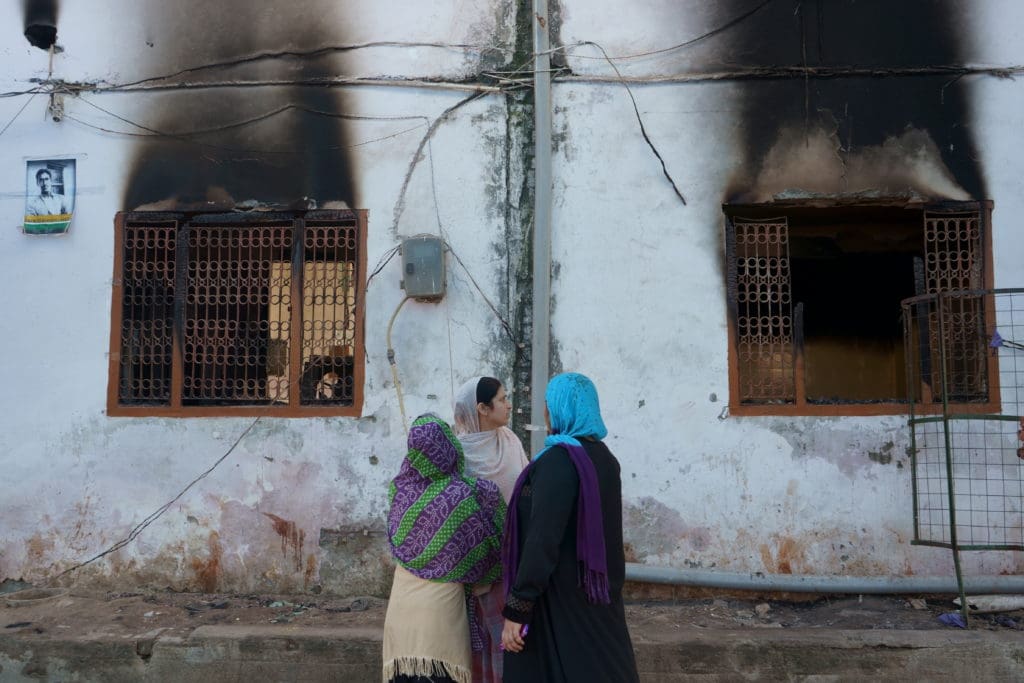
B VIVEK
The International Indian diaspora has voiced its concerns about the human rights situation in India.
“The Hindu nationalist Bharatiya Janata Party is reordering the basis of Indian statehood. Exclusionary politics posits difference as “anti-national,” igniting the fault lines of India’s already conflicted democracy.” Angana Chatterji, Research Anthropologist and Founding Co-chair, Political Conflict, Gender and People’s Rights Initiative at the Center for Race and Gender at the University of California, Berkeley, told the Australian Senate Standing Committee on Foreign Affairs, Defence & Trade in response to the committee enquiry on ‘Opportunities for advancing Australia’s strategic interests through existing regional architecture’.
Dr Chatterjee was addressing the Committee as an expert witness at the invitation of The Humanism Project, a social justice advocacy group that represents the Indian diaspora in Australia. Dr Ruchira Talukdar from the University of Technology Sydney also spoke to the Committee as an expert witness. Dr. Talukdar is an Indian environmental advocate, researcher and former environmental campaigner at the Australian Conservation Foundation.
Addressing the Committee via a video link, Dr Chatterjee said, “The conspiracy theory of ‘love jihad’ propagates that Muslim men are seeking to marry Hindu women to convert them to Islam and change India’s demographics. Four states have enacted laws against “love
jihad.”
The onslaught of nationalization dispossesses Adivasis and Dalits of their ancestral lands. Forcible conversions to Hinduism and obstruction of the right of individuals to convert from Hinduism jeopardizes the religious freedoms of Christians. The Assam Cattle Preservation Bill of 2021 forbids the purchase and sale of beef where non-beef- eating communities live.”
Talking about India’s Citizenship Amendment Act (2019) and National Register of Citizens, Dr Chatterjee said that because of these new laws, those at risk of loss of citizenship would include tribal (indigenous), ethnic, and minority communities, a primary target being Assam’s sizeable Muslim community, in particular Bangla-descent Muslims, fabricated as “outsiders.”
Dr Chatterji also spoke about the arrest of dissenting student activists, public intellectuals, civil society advocates, media persons, lawyers, scholars, teachers, women, minorities, allies who are deemed “anti-national” on “reportedly specious charges”.
“The BJP’s policies validate the majoritarian conviction that Hindus must remain ascendant in India. Aided by millions of grassroots Hindu nationalists, the state’s actions are exacerbating already unequal relations of power between the majority and minority. Gendered, Islamophobic, and racialized, its impact on Christians, Muslims, Sikhs; Adivasis, Dalits, and other caste-oppressed groups; and LGBTQIA communities, is staggering. “, Dr Chatterji concluded.
Dr Ruchira Talukdar told the Committee, “India’s image as a good climate actor due to its ambitious renewable energy targets tends to sideline ongoing attacks on the environment and environmental organizations. Dilution of people’s rights to forests and land, air pollution, water scarcity, loss of forests, and weakening the environmental regulatory framework for ‘ease of business’ is leading towards an environment-related human rights crisis in India. Such actions increased in 2020 under the pretext of post-Covid economic recovery. “
Dr Talukdar said, “India now ranks 117 amongst 192 nations in terms of sustainable development; its ranking on the global Environmental Performance Index has plummeted to 177 out of 180 countries. The Environmental Justice Atlas, a global map of land and environmental conflicts, shows that India has the world’s highest environmental conflicts, indicating considerable social unrest over access to resources and land that ultimately have a bearing on the quality of India’s democratic functioning. Despite a national program to clean up public spaces and a ban on single-use plastic bags, the escalation of bigger environmental issues pose serious concerns for India’s future sustainability.”
“The Adani Group-owned Carmichael coal mine in Queensland is seen as a crucial link to resource-based relations between India and Australia. The extent of favouritism by the Modi government and violation of land and forest rights by state governments in India for Adani, and the Group’s environmental destruction, is now public knowledge in Australia. The case of the Adani Group epitomizes India’s environment-related human rights problem. This problem deserves a critical response from Australia to make its partnership with India truly based on democratic values. “, Dr Talukdar added.
This story first appeared on nriaffairs.com





